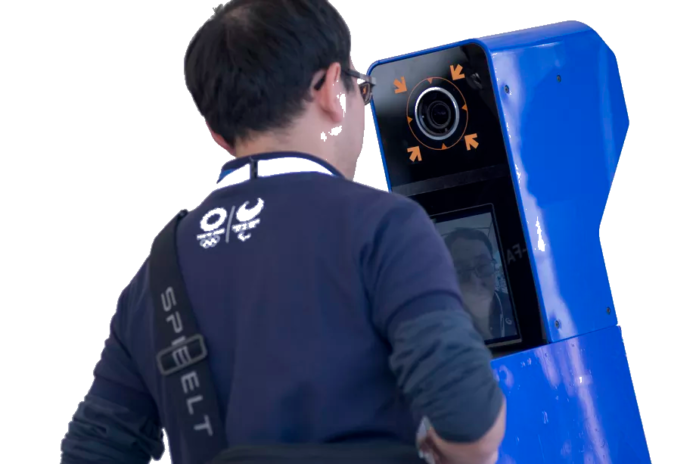
A new map shows how widespread the use of facial recognition technology is.
Across the US, government use of facial recognition technology, which critics say poses a serious threat to Americans’ civil liberties, is on the rise. A new report released Thursday from digital rights advocacy group Fight for the Future visualizes how often US law enforcement agencies use this software to scan through millions of Americans’ photos — often without their knowledge or consent.
While the map isn’t exhaustive, it is one of the most comprehensive guides showing how common and widespread facial recognition use is becoming. The map compiles existing data from the Center on Privacy and Technology at Georgetown Law, news reports, press releases, and other sources.
Some examples: In several states, including Texas, Florida, and Illinois, the FBI is allowed to use facial recognition technology to scan through DMV databases of drivers’ license photos. In many US airports, Customs and Border Protection now uses facial recognition to screen passengers on international flights. And in cities such as Baltimore, police have used facial recognition software to identify and arrest individuals at protests.
:no_upscale()/cdn.vox-cdn.com/uploads/chorus_asset/file/18318751/Screen_Shot_2019_07_18_at_7.22.53_AM.png)
Fight for the Future’s map shows where and how the government is applying facial recognition, as well as legislative challenges to the tech’s rollout. It’s part of the organization’s campaign for a nationwide ban on facial recognition technology — something lawmakers across the US have begun to explore.
While Congress hasn’t introduced any legislation for an all-out ban, lawmakers on both sides of the aisle have raised concerns about the technology in recent oversight hearings. In the past few months, three cities — San Francisco; Somerville, Massachusetts; and now Oakland, California — have all banned local law enforcement from using facial recognition technologies.
“I think there’s something really visceral about the idea of having your face scanned, and having a cold, emotionless piece of software make decisions that have a profound impact on people’s lives,” Evan Greer, deputy director of Fight for the Future, told Recode.
Many police departments are eager to use facial recognition tools, saying they can help them more efficiently identify and arrest criminals. In a high-profile win for the technology last year, Maryland police used facial recognition technology to help correctly identify the suspect in the deadly Capital Gazette newspaper shooting. The Department of Homeland Security has also maintained that the technology can help the government more quickly screen travelers and process immigration. But researchers, privacy activists, and many elected officials warn about its risks.
Critics worry that pervasive use of facial recognition technology could have a chilling effect on free speech if people feel they’re constantly being watched. They point to China, where the government uses the software to track the country’s Uighur religious minority.
They also point out that facial recognition technology has been proven to perpetuate existing biases against women and minorities.
There’s still a lot of secrecy around how and where exactly facial recognition technology is used. Earlier this month, elected officials criticized how ICE and the FBI scan state drivers’ license photo databases with facial recognition tech without citizens’ consent, turning “state departments of motor vehicles databases into the bedrock of an unprecedented surveillance infrastructure,” as the Washington Post first reported.
Fight for the Future’s map also details about 40 local police partnerships with Ring, Amazon’s video surveillance doorbell that includes a social media component. The company has told Recode, “Ring does not use facial recognition technology,” and that it does not collaborate with Amazon’s controversial facial recognition tech, Rekognition.
But Fight for the Future included Ring police collaborations on this map because the company has filed patents for facial recognition tech that could identify “suspicious” people and then alert police.
As to whether that means Ring will use facial recognition in the future, a Ring spokesperson said, “[A] patent filing application does not necessarily indicate current development of products and services, and like many companies, Ring files a number of forward-looking patent applications that explore the full possibilities of new technology. Ring takes the privacy and security of its customers’ extremely seriously and privacy and security will always be paramount when Ring considers applying any patents to its business or technology.”
Recode and Vox have joined forces to uncover and explain how our digital world is changing — and changing us. Subscribe to Recode podcasts to hear Kara Swisher and Peter Kafka lead the tough conversations the technology industry needs today.
Original Link:
https://www.vox.com/recode/2019/7/18/20698307/facial-recognition-technology-us-government-fight-for-the-future









